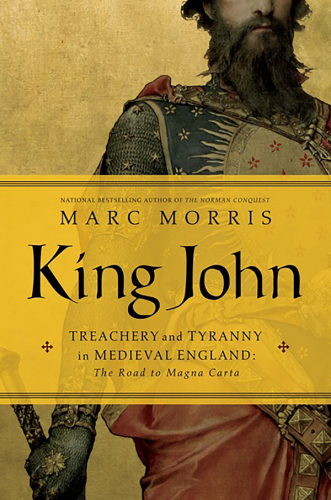
King John
کتاب های مرتبط
- اطلاعات
- نقد و بررسی
- دیدگاه کاربران
نقد و بررسی

July 20, 2015
In lively, cultured prose, English historian Morris (The Norman Conquest) investigates the complex road taken by “Bad King John” to the signing of the Magna Carta in June of 1215. John, the youngest son of Henry II of England and Eleanor of Aquitaine, came to the throne already tarnished by his attempt to usurp his brother Richard. This might have been ignored if John had been a more able king. The loss of Normandy in 1204 devastated both John and England, and in subsequent years John’s need to regain his patrimony led him to mercilessly tax lords and commoners to replenish his army. The king’s quest for funds also put him at odds with Pope Innocent III, who placed England under interdict. While more annoying than harmful, this further increased opposition to John. Morris uses royal and local records to evaluate contemporary chroniclers, offering an excellent example of how historians gauge the trustworthiness of their sources. But he’s also chosen to tell the story out of order, so while his segues demonstrate his skill, the temporal leaping can cause confusion. Nevertheless, Morris’s book as a whole is full of fascinating details, with the added bonus of a translation of the full Magna Carta. Agent: George Lucas, Inkwell Management.

September 1, 2015
Morris (The Norman Conquest) tells the story of King John (1166-1216), not the fictional villain passed down to us through The Adventures of Robin Hood, but "the real King John" located in "the evidence from his own day." That man, Morris maintains--building on works by William Marshal, S.D. Church, R.V. Turner, and others--"was not nearly as bad as his...chroniclers" maintained. While John was often cruel (and known for starving his captured enemies to death) and feared as a "sexual predator," we must also take into account his role in creating the Magna Carta, which would become his lasting legacy. Not all historians, however, including those who celebrate the Magna Carta, believe John so easily absolved. Historian David Hume considered John "nothing but a complication of vices, equally mean and odious; ruinous to himself, and destructive to his people." VERDICT While its premise is controversial, this highly readable volume, illustrated with several photographs, including two of John's tomb in Worcester Cathedral, effectively concludes with an English translation of the Magna Carta of 1215.--Mark Spencer, Brock Univ., St. Catharines, Ont.
Copyright 2015 Library Journal, LLC Used with permission.

























دیدگاه کاربران